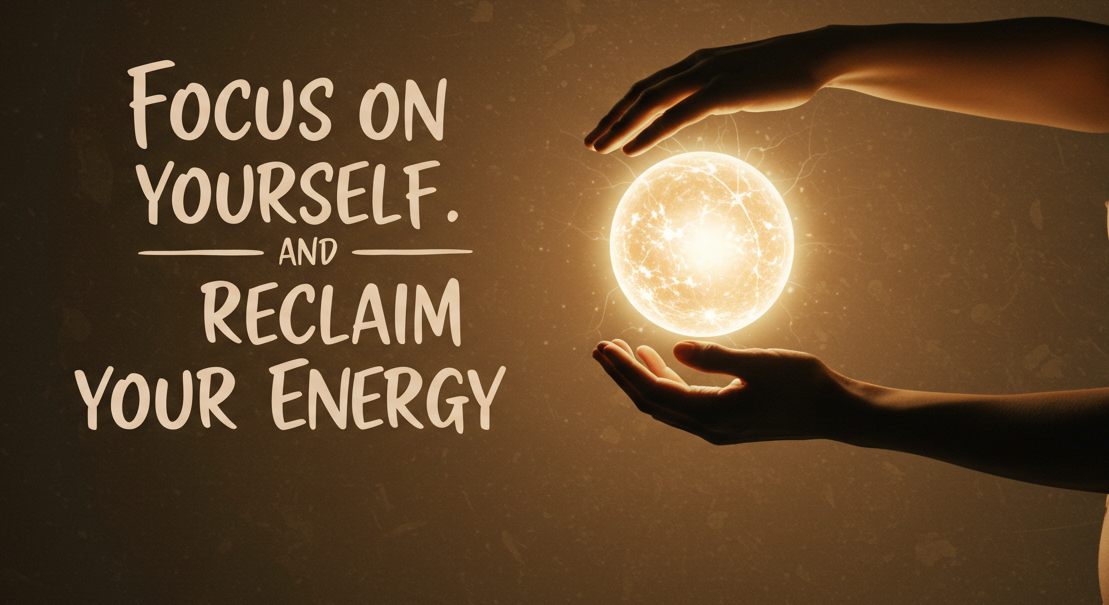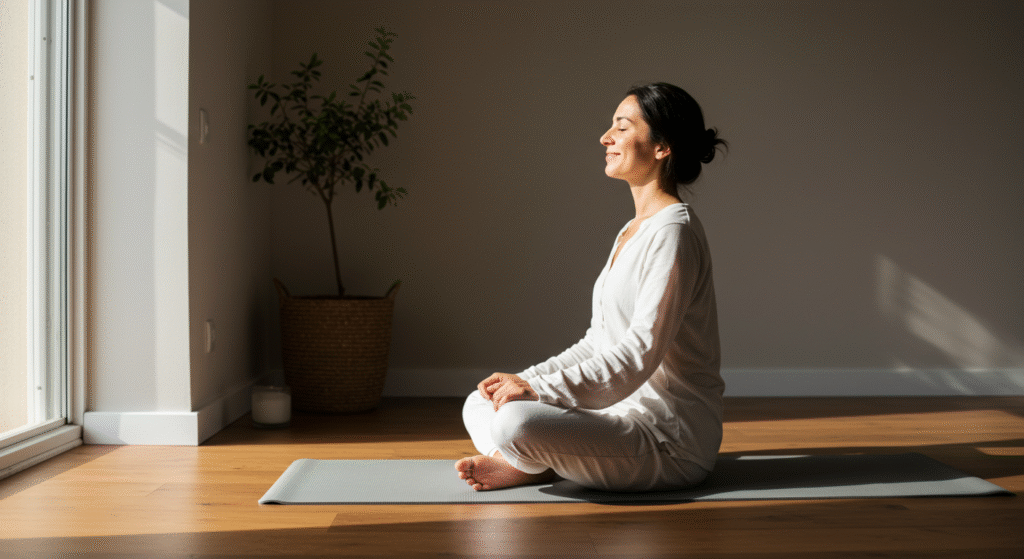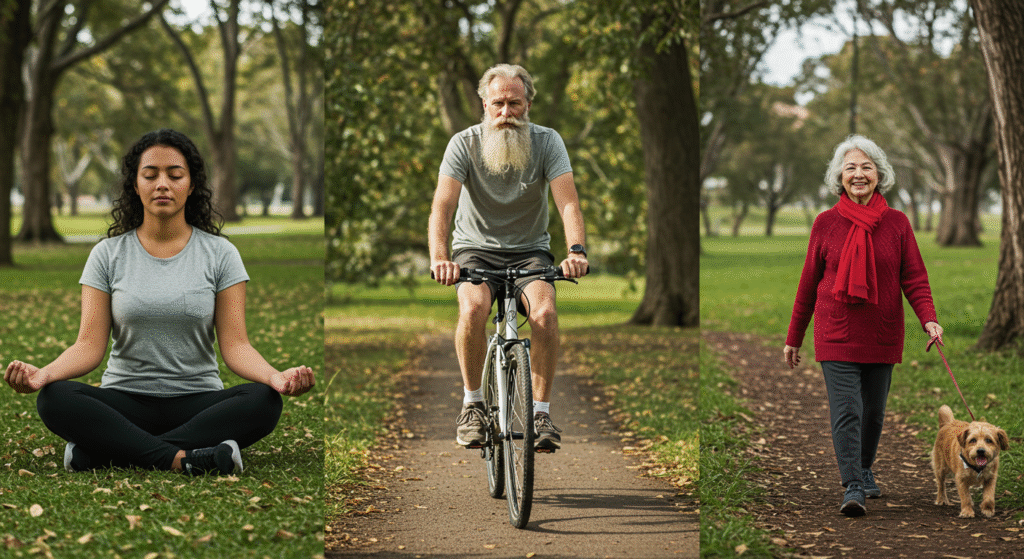Life can get overwhelming, with countless responsibilities pulling our attention in all directions.
Learning to focus on yourself is crucial for maintaining balance, replenishing your energy, and achieving a sense of fulfillment.
Below, we’ll explore ten powerful strategies to help you prioritize your well-being while rediscovering your vitality.
Table of Contents
- Understand the Importance of Focusing on Yourself
- Set Clear Boundaries with Others
- Prioritize Self-Care Activities
- Practice Mindfulness Daily
- Nurture Your Physical Health
- Limit Digital Distractions
- Pursue Personal Growth and Learning
- Declutter Your Environment
- Spend Time Alone Regularly
- Create a Gratitude Practice
1. Understand the Importance of Focusing on Yourself
Focusing on yourself is not selfish—it is essential for maintaining mental, emotional, and physical well-being. Begin by recognizing how prioritizing yourself impacts not only you but also those around you.
The better you feel, the more you’re able to show up for others with kindness and support.
Consider how neglecting your needs has left you feeling drained or overwhelmed in the past. With intention, you can change this narrative.
Evaluate what areas of your life currently require the most attention—whether it’s your health, personal goals, or relationships.
When you focus on yourself, you reconnect with your values, boost your self-confidence, and cultivate inner peace. This foundation allows you to tackle life’s challenges with clarity and resilience.
Remember, dedicating time to focus on yourself is an act of self-respect. The more you nurture your mind and body, the more your energy and productivity soar.
2. Set Clear Boundaries with Others
Setting boundaries is a critical step toward focusing on yourself. It involves clearly communicating your limits and making decisions that align with your needs.
Saying no to unnecessary commitments or toxic relationships can free up time and mental space for self-care.
Boundaries help define where others end, and you begin. Without them, it’s easy to become overburdened and lose focus on yourself.
Reflect on areas where you feel stretched too thin or taken for granted and identify changes to make.
Communicate your needs respectfully, whether it’s requesting private time or delegating tasks.
While others may not understand initially, those who value your well-being will come to respect your decisions.
Healthy boundaries foster mutual respect and prevent burnout. They encourage healthier relationships where you can thrive while staying true to yourself.
3. Prioritize Self-Care Activities
Self-care comes in many forms, from physical exercise to pampering yourself with relaxation. Focusing on yourself requires scheduling time for activities that nourish your mind, body, and soul.
Develop a self-care routine tailored to your preferences, whether it’s soaking in a bath, meditating, or enjoying a favorite hobby.
These moments recharge your energy and promote a positive mindset.
Even small actions can have a significant impact. For example, drinking enough water or taking a 10-minute walk during your break can do wonders for your focus and mental clarity.
Making self-care a non-negotiable priority sends a powerful message to yourself—you are worthy of care and attention.
4. Practice Mindfulness Daily
Mindfulness is about fully immersing yourself in the present moment rather than worrying about the past or future.
Practicing mindfulness daily is an effective way to focus on yourself, reduce stress, and increase happiness.
Start by setting aside a few minutes each day for mindfulness exercises. This could be deep breathing, observing your emotions, or practicing gratitude.
Engaging your senses—such as noticing the taste of your food—helps anchor you in the moment.
Over time, mindfulness becomes a habit that boosts self-awareness.
By becoming more attuned to your thoughts and feelings, you can recognize what brings you joy and what drains your energy.
Mindfulness also encourages self-acceptance. It allows you to focus on yourself with kindness, free from judgment or criticism.
5. Nurture Your Physical Health
Your physical health directly influences your emotional and mental well-being.
Focusing on yourself involves nurturing your body through proper nutrition, exercise, and rest.
Start with small adjustments, like adding more vegetables to your meals or walking for 20 minutes daily. Gradually implement habits that fuel your body and energize your spirit.
Adequate sleep is another essential component of self-care. Aim for 7–9 hours each night, ensuring your body gets the restorative rest it needs to thrive.
Physical activity doesn’t have to be exhaustive; yoga, swimming, or dancing can be excellent, enjoyable options.
When you feel strong physically, it becomes easier to focus on yourself and your goals.
6. Limit Digital Distractions
Technology, while valuable, often distracts us from focusing on ourselves. Social media, endless notifications, and comparison culture can degrade self-esteem and steal valuable time.
Set boundaries with your devices by designating specific times for checking emails or scrolling feeds.
Apps that track screen time can help you recognize areas to cut back.
Replace scrolling time with offline activities like reading, journaling, or spending time outdoors.
Disconnecting from digital overload reconnects you with your priorities and increases your focus on personal growth.
When you intentionally control your screen time, you’ll notice improvements in your mood, focus, and productivity.
7. Pursue Personal Growth and Learning
Focusing on yourself isn’t just about relaxation—it also involves challenging yourself to grow.
Investing in personal development keeps your mind energized and fosters a sense of accomplishment.
Explore topics that interest you, whether it’s learning a new language, mastering a skill, or pursuing career-related certifications.
Online courses, workshops, and books are excellent resources for expanding your horizons.
Goal setting allows you to channel your energy by working toward tangible achievements.
Break larger goals into manageable steps to maintain progress while avoiding overwhelm.
Growth isn’t just about external skills—it’s also about building resilience, emotional intelligence, and a positive mindset.
8. Declutter Your Environment
Physical and mental clutter can hinder your ability to focus on yourself.
An organized space promotes a sense of calm and clarity, making it easier to prioritize your needs.
Start with small steps, like clearing out a single drawer. Gradually tackle larger projects, maintaining a system for keeping your space tidy.
The act of decluttering can be therapeutic, helping you release anything that no longer serves your purpose. It’s a visual reminder of the shift in focus toward yourself and what truly matters.
A clutter-free environment supports a clutter-free mind, making space for creativity, relaxation, and personal growth.
9. Spend Time Alone Regularly
Spending time alone allows you to reconnect with yourself, reflect on your emotions, and focus on personal needs.
Solitude is not loneliness—it’s a form of self-renewal that strengthens your sense of individuality.
Use this time to explore hobbies, journal your thoughts, or simply relax with no pressure to perform.
Quiet moments help you recharge and build inner peace.
Solitude also provides the opportunity for introspection. You can identify what’s working in your life and what areas could use attention.
Making time for yourself—free from distractions—develops your ability to listen to your intuition and prioritize your energy.
10. Create a Gratitude Practice
Gratitude is a powerful tool for shifting your mindset and focusing on the positive aspects of your life.
By cultivating gratitude, you naturally focus on yourself in a deeply nourishing way.
Start small by listing three things you’re grateful for each day. Be specific—small details often carry the most meaning.
For example, instead of “my friends,” write “the laughter I shared with Sarah today.”
Gratitude helps you recognize the abundance in your life, reducing stress and promoting optimism.
It also improves your ability to overcome setbacks by reminding you of your strengths and achievements.
When you focus on yourself through gratitude, positivity radiates into every area of your life.
FAQs
- Why should I focus on myself?
Focusing on yourself boosts your physical, emotional, and mental health, enhancing your quality of life.
- How can saying no help me prioritize myself?
Saying no creates space for your needs, reducing overwhelm and preventing burnout.
- What’s the connection between mindfulness and self-focus?
Mindfulness increases self-awareness, helping you understand and address your needs effectively.
- Is self-care only about physical activities?
No, self-care includes emotional, mental, and spiritual practices that bring balance and joy.
- How do boundaries improve relationships?
Healthy boundaries establish mutual respect, fostering positive, supportive connections.
- Can limiting screen time improve my focus?
Yes, reducing digital distractions helps you reconnect with yourself and your goals.
- How does decluttering aid mental clarity?
An organized space reduces stress, allowing you to focus on personal growth.
- What’s the purpose of spending time alone?
Alone time provides clarity, fosters self-reflection, and strengthens your independence.
- How can gratitude practices improve my life?
Gratitude shifts your perspective toward positivity, increasing overall contentment.
- What’s the first step to focusing on myself?
Start by becoming aware of your current needs and making small, intentional changes.
Table Elaborating Focus Strategies
| Strategy | Example Activity | Benefit |
| Mindfulness | Deep breathing exercises | Enhances self-awareness |
| Self-Care | Taking a relaxing bath | Recharges energy |
| Decluttering | Organizing your workspace | Reduces stress |
| Gratitude | Writing a daily gratitude list | Improves mood and outlook |
| Solitude | Journaling thoughts alone | Boosts introspection and focus |
By implementing these strategies, you can shift your energy back toward what truly matters—yourself.
Prioritize your well-being, and you’ll not only reclaim your energy but also rediscover the joy of living authentically.











